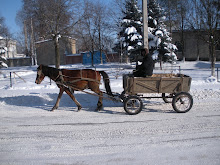 Somewhere around December 1, 2009, a member of the youth council read about World AIDS Day events on the internet and wanted to see something done here, in our town. Not that an informational campaign isn't useful at anytime, but due to the lateness of the request, the idea never caught on at the council...the moment passed. Moreover, the youth council members would have struggled to put together a campaign on an issue they themselves knew very little about.
Somewhere around December 1, 2009, a member of the youth council read about World AIDS Day events on the internet and wanted to see something done here, in our town. Not that an informational campaign isn't useful at anytime, but due to the lateness of the request, the idea never caught on at the council...the moment passed. Moreover, the youth council members would have struggled to put together a campaign on an issue they themselves knew very little about. Thus, I am happy to report the success of World AIDS Day 2010, a three-part story.
Part One: Getting Informed
Peace Corps applicants are told that they will probably work in HIV/AIDS prevention at some point during their service, no matter the field of work. It's a worldwide Peace Corps initiative. But in Moldova, due to strict regulations regarding what can be taught in the classroom on the subject, it isn't exactly an area where we are encouraged to seek work.
Thus, my politically correct strategy for getting the youth informed on the issue was to call in a third-party expert. Tinerii pentru Dreptul la Viață (Youth for the Right to Life), an organization from a neighboring city, is an organization with which we were already acquainted from our mutual participation in a human trafficking prevention event.
By the end of the seminar the group felt comfortable with Corina and the information she was sharing. We sat around the table and I watched a quizzical look come across an eighth grade girl's face...
"Miss Corina, I have a question...where did the HIV come from?" She managed.
"Well, there are some theories," Corina started, before a tenth grader interjected.
"From the homosexuals of course!" The tenth grader stated.
"But, where...I mean from whom did the homosexuals get it in the beginning?" The eight grader fired back.
Watching Moldovans react to subjects like these is fascinating. In America, we have (mostly) sensitized ourselves to these issues. The generation of Moldovan youth I work with is just starting to question if sensitization is something they want for their country, for their culture. Guess what? They don't all agree.
Part Two: Preparing the Information
The day before World AIDS day, volunteers prepared materials for the street campaign. While some painted signs, others worked on finding a maxim to post around town, I translated a fact sheet to be printed, and everyone got quizzed by yours truly on the facts.
Not only did I ask the youth who attended the previous week's seminar to repeat pertinent facts, but we also worked through a basic HIV/AIDS Quiz I found online. Between the quiz and the expert opinion, there was still at least one volunteer believing that HIV is contractible from mosquitoes. But to be honest, as long as she understood all the other ways you can definitely contract the disease, I'm happy to hear the group argue and repeat the facts.
Part Three: Disseminating the Information
Finally, on World AIDS Day 2010, we took to the snowy streets with our signs, brochures, fact sheets, ribbons, and positive energy. Since the snow seemed to fall heavier by the minute, I can't say this is our most successful campaign (in terms of numbers of people we actually spoke with), but we stayed out there until all our materials had been distributed. When I got home, my host mom said that thing again...
"Melissa, your eyes are smiling! Where have you been?!"






























Sunteti Bravo
ReplyDeleteMultumesc Sasha! Sper ca tot e bine la tine :D
ReplyDelete